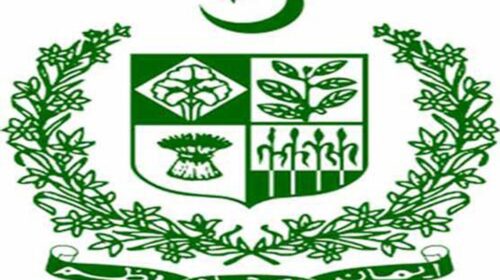Despite the federal government’s intervention, commercial banks remain reluctant to increase the credit limits of oil marketing companies (OMCs) spurred by Hascol’s Rs54 billion default, which might trigger a country-wide fuel shortage.
The hesitance on part of commercial banks to increase the credit line would certainly serve nothing, but expose the country to massive shortage of POL products, particularly high speed diesel, which was in high demand for harvesting wheat in Punjab and Sindh – the country’s food baskets.
“Apart from HASCOL, there are two more OMCs” that are facing various kinds of investigations for “financial wrongdoings, which is why the scrupulous OMCs are also not being extended the increase in credit lines,” sources in the Energy Ministry and oil industry told The News.
Commercial Banks instead have asked for additional collateral far beyond the lending to OMCs compared with other industries. Over the last five months, the purchasing power of OMCs for PMG and HSD has declined by over 30 percent. The weakening of the rupee again dollar also contributed to the increase in the products’ value.
“The Price Differential Claim (PDC) has also started creating an additional burden on the working capital of OMCs,” the official sources informed. The PDC would likely result in a build-up of receivables from the government, thereby limiting the ability of OMCs to procure HSD on timely basis.
Industry sources said that by the end of March, the PDC would be to the tune of Rs20/litre in petrol and Rs33/litre on HSD. Sources also confirmed that in the first fortnight, PDC was calculated at Rs883 million, which would jack up Rs26 billion in the next fortnight during March 16-31.
On March 11, Puma Energy Pakistan Limited (PEPL) wrote a letter to the Oil and Gas Regulatory Authority (OGRA), narrating its worsening working capital situation. It asked OGRA to push commercial banks into providing adequate credit lines for the procurement of POL products and timely disbursement of PDC, as well as ensuring that local refineries provided the committed volumes throughout the month.
In its letter, PEPL argued that the current geopolitical situation and sharp increase in international oil prices put a severe strain on its working capital requirements, and as a result its ability to procure products was depleting fast.
OMCs are of the view that unless and until the credit lines were enhanced and on time payments of PDC ensured, the imminent fuel crisis could not be averted. The working capital requirements of OMCs and refineries were on the rise on the back of rupee depreciation, increase in international oil prices and increase in local demand.
As of September 2021, a 50 percent increase in average oil prices was recorded since January 2O21 (USD 81.56/barrel vs USD 54.38/barrel). Moreover, rupee has also depreciated by 7 percent since January 2021.
During the first half of the current financial year 2021-22, sales of POL products have increased by 24 percent as compared to last year. Additional Secretary of Petroleum Division wrote to the governor State Bank of Pakistan on February 28 and mentioned the commercial banks’ indifference to the demand of OMCs and refineries for increasing their credit limits. “Commercial banks are also reluctant in opening the letter of credits (LCs) for importing POL products,” said the letter.
“Pakistan is heavily reliant on imported fuels and the OMCs have to import diesel, petrol and jet fuel to meet the local demand. The federal government had pleaded that since the POL prices in the international market have increased manifold mainly because of Russia-Ukraine war, the working capital of OMCs and refineries has squeezed. Keeping in view the current credit limits, if the financial limits were not increased, then there were chances of disorder in the fuel supply chain, it added.







